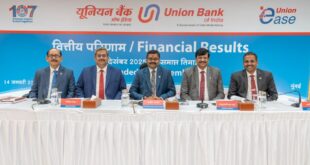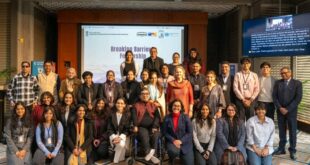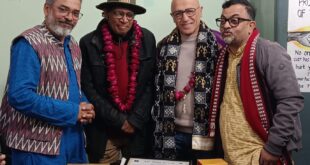Jubilee News Desk
Election speeches had bountiful of poverty eliminating stuff way back in early 90’s and today its freebies – in Indian politics. Does Indian politics now believe poverty could not be eliminated hence switch to freebies?
In India, the poor vote proportionally more than the rich it is believed as poor can stand in queue for long hours and the rich can not.
Thus voter turnout is expected to be higher in rural areas than urban. But do only the poor need free things while others can work for what they need.
So here comes the political nose for freebies which has potential to win constituencies. The recent announcement was from Aam Admi Party declaring 300-units of free electricity if it comes to power in Uttar Pradesh.
It’s just the beginning and more parties will come up with freebies hence discussion is not about one party as ‘free’ has become a political word since past over 20-years in Uttar Pradesh.

The election manifesto of almost all the parties are yet to come and what’s in the store for 2022 assembly polls is yet to be made public but a though has begun from the marketing strategy — if you buy a specific product you get something free and if you vote a specific party you get free electricity/water/treatment/house etc.
In the 2006 assembly election in Tamil Nadu, the DMK offered PDS rice at Rs 2 per KG. In 2011, Jayalalithaa upped the ante and offered 20 kg free rice.
Two elections later, free PDS rice is now mandatory. Uttar Pradesh isn’t new to freebies politics.
The state is supposed to provide fair opportunities to every citizen irrespective of caste, creed, religion, and to work to eliminate these barriers but what actually the freebies tool did was to divide among those who got it and those who wanted.
As successive governments replaced predecessors new segment of freebies beneficiaries got created, and so new segment of unsatisfied freebies seekers too got created.
Not all elected state governments can claim they had pro-poor policies.
But faith of India’s poor in the democratic process stems from their expectations. Poverty alleviation or saying so is not an economic imperative but a political necessity now.
And this necessity has changed face since its inception. First was food based freebie starting with rice, wheat and later the health facilities such as free treatment joined the scenario. Samajwadi Party chief Mulayam Singh Yadav promised Uttar Pradesh youth jobs or unemployment allowance if his party was voted to power, in an election rally in January 2012.
Definitely, job, education, health and social security are basic need all want and this basic need has been well played since decades now in the political galleries.
State is constrained both by the political and economic process. Hence when a party forms (read becomes) government the election promises appear entangled between legal, financial rules and approvals from personnel and other departments made to rather tell the government how something is ‘not possible’. Any state will spend in some limit against its revenue.
Uttar Pradesh has been tabling a budget of expense more than projected revenue since after 1952. In fact, developing-country democracies fail to have a good track record in reducing poverty.
So for laughter imagine a situation. Five parties promise you free electricity, water, education, healthcare, and travel and the government is a coalition one with five allies. Who shall work then.
 Jubilee Post News & Views
Jubilee Post News & Views




